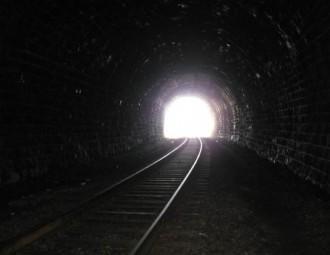Uladzimir Khalip: Only civil activity can give us a chance to reacquire status of a nation

The essence of Belarusan problem lies in a question whether to live in a free country or to continue behaving like the brute, believes Uladzimir Khalip.
A journalist, playwright, theatre expert and a cinematographer Uladzimir Khalip in the talk with the EuroBelarus Information Service meditates upon the temporariness of our country, prolonged anabiosis of Belarusan nation and whether Belarus is really European.
Liberalization is looming ahead again
- These recurrent talks about liberalization seem stupid for me, as I can only see the regime becoming increasingly brutal, wild, and Asian, without any trace of European features. We can find something similar to this regime in Africa, not even in Asia.
Now everything depends exclusively on civic activity if Belarusans want all this bigotry and absurdity disappear. It is weird to talk about new liberalization under the threat of losing our nationality. If the nation wants to be in a state of anabiosis, we can’t talk about a nation here. Let me emphasize this: only civil activity can give us a chance to re-acquire the status of a nation.
The point of no return
The authorities have finally lost all self-restrictions; though I think that the point of no return hasn’t been passed yet. However, Belarusans are very close to it, and the society should find enough strength in order not to cross it. But I can’t see some impulses that can awake this strength.
On the structured opposition and the society
Belarus is an exclusion from the normal European process, the country where no civilized schemes and methods are working. That is why we shouldn’t count on some political parties or movements, as everything will be decided by the society: whether to live in a free country or to continue behaving like the brute.
The intellectuals have disappeared; neither there is some visible coordinated and connecting work; there are several dissenters. Belarus has never been in such a situation before, even under the Soviet rule, as there has always existed a boundary between the society and the authorities; “we” and “they” have always existed separately; whereas now the whole society is spoilt by the authorities. It seems that people don’t think that the lives of our children and grandchildren depend on today’s situation, i.e. they don’t think about their inheritors. And this is what terrifies me, as our country is being ruined.
However, I do believe that there exists some mechanism which moves the world forward. Something must change and get going in the society. I don’t think it will be a result of economic difficulties; perhaps, Belarusans will at last think about the future generations.
-
03.01
-
07.10
-
22.09
-
17.08
-
12.08
-
30.09



























